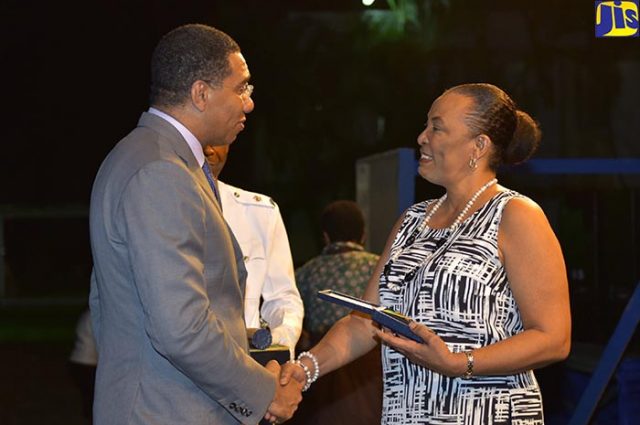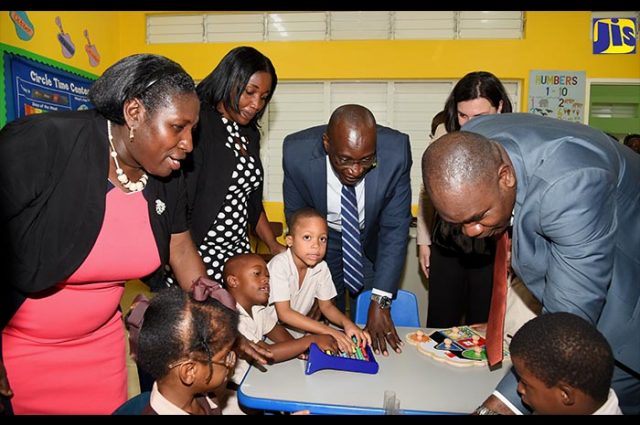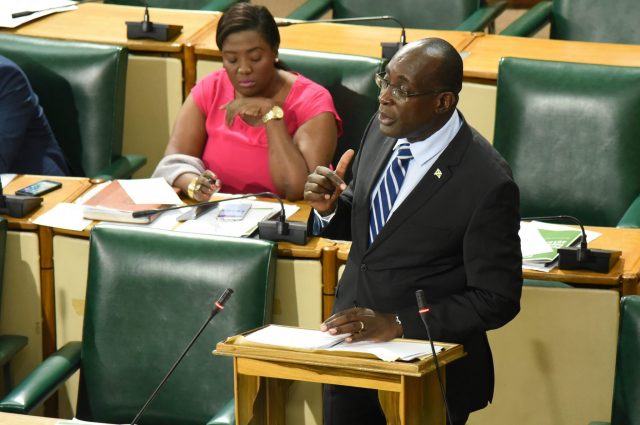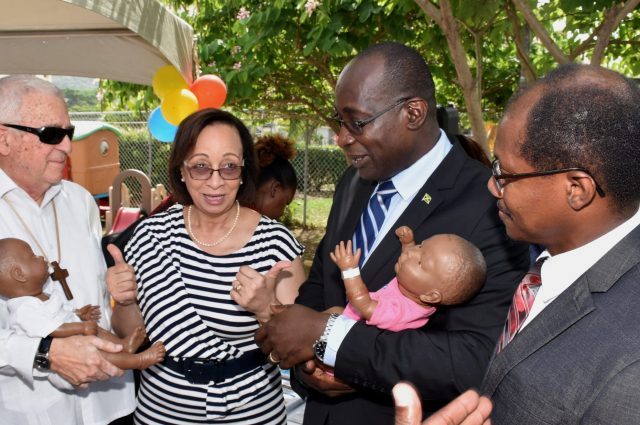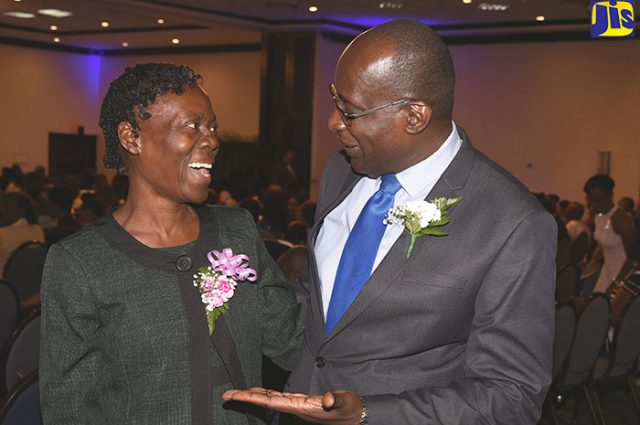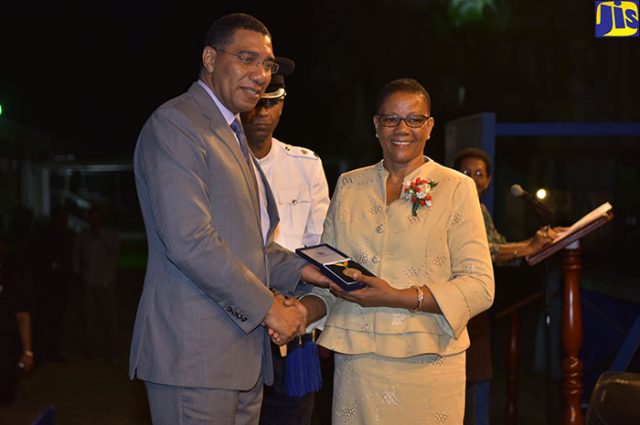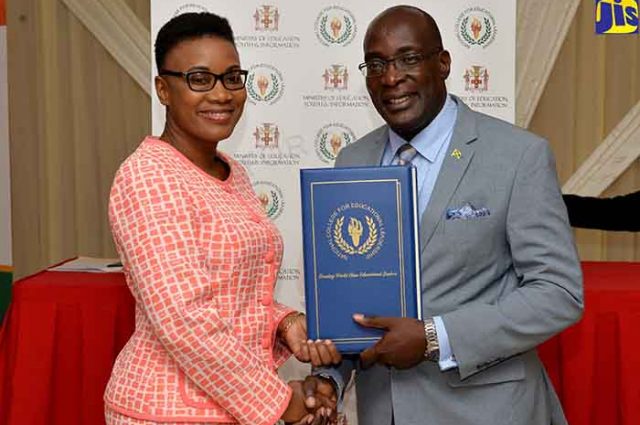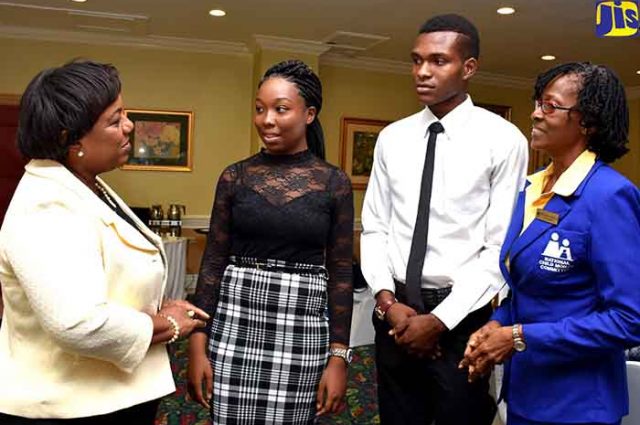JIS: Six hundred and fifty high-school students across the island are to benefit from a $100-million Hospitality and Tourism Management Programme (HTMP) this year, which will see them gaining internationally recognised certification in the industry.
To be rolled out in 30 high schools in mid-September, the intense two-year programme will be offered to students in grades 11, 12 and 13, free of cost.
It will provide participants with broad-based learning on the tasks, knowledge and skills required to build a career within the hospitality and tourism industry.
A joint initiative between the Ministry of Education, Youth and Information, and the Ministry of Tourism, the programme is being facilitated under a Memorandum of Understanding (MOU).
The MOU was signed by portfolio Minister in the Education Ministry, Senator the Hon. Ruel Reid, and Tourism Minister, Hon. Edmund Bartlett, during a ceremony at Jamaica House on Wednesday (July 11).
Minister Reid said he endorsed the initiative, noting that it is timely and consistent with the Ministry’s overall plans for the education and training sector.
He said it is specifically aligned with the Ministry’s ‘K-13’ strategy, which seeks to ensure that the education system reaches students from conception to age 18.
Senator Reid further noted that the programme is also important in preparing students to be adequately trained for the nuances of the industry.
In his remarks, Minister Bartlett said the programme will result in a fully trained, highly efficient workforce that can provide the best experience for visitors.
“There is nothing that makes a destination more appealing than (high levels of service). We seek to build the capacity of our human resources, because tourism is all about people and building people for creative exposure,” he said.
The HTMP is offered by the American Hotel and Lodging Educational Institute (AHLEI), as part of its suite of programmes aimed at high-school students. It was developed by industry experts and members of the American Hotel and Lodging Association as the official industry-recognised curriculum to prepare students for roles in hotels and the hotel industry at large and beyond.
The 30 teachers who will be delivering the programme content for the courses will be specially trained to do so. They will participate in the AHLEI’s Certified Hospitality Instructor (CHI) training programme in August. This will also involve participation of teachers from 15 colleges.
Graduates of this programme will gain an Associate Degree in Customer Service; AHLEI Certification; National Vocational Qualification of Jamaica (NVQ-J) level 4 Certification; and Customer Service Industry Association recognition.
The programme will also include internships, facility tours and the completion of academic and practical tasks in class and online.
CAPTION: Minister of Tourism, Hon. Edmund Bartlett (centre), presents Minister of Education, Youth and Information, Senator the Hon. Ruel Reid (left), with a copy of a Memorandum of Understanding (MOU) that will see the implementation of a $100-million Hospitality and Tourism Management Programme in 30 high schools across the island. Both Ministers signed the agreement during a ceremony at Jamaica House on Wednesday (July 11). Also pictured is Permanent Secretary in the Tourism Ministry, Jennifer Griffith.



